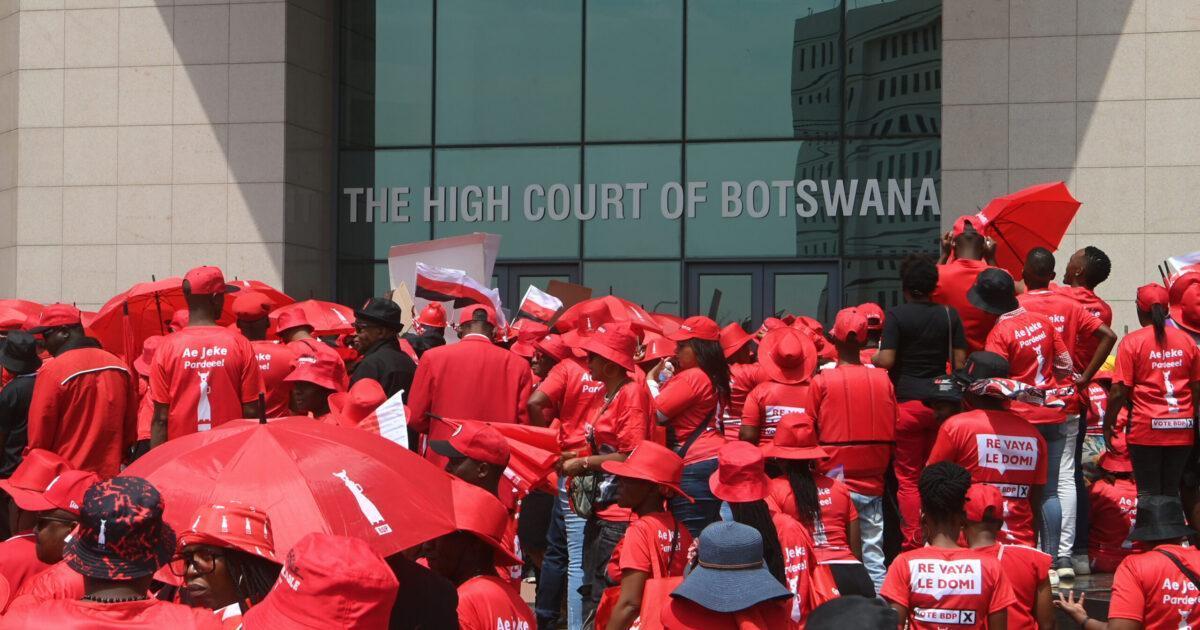Africa-Press – Botswana. The BDP meets to wrap up preparations for its “make-or-break” weekend congress elections and to weigh a proposal to hire an independent consultant for the elections – a move backed by lobby groups and the party’s Political Education and Elections Committee, but one that has stirred more tensions within
For the first time in 58 years, the Botswana Democratic Party (BDP) is heading into an elective congress not as the ruling party and there are fears about what may become of the congress.
The once-dominant political force suffered a dramatic loss at the last general elections on 30 October last year, marking an end to a historic political era. The BDP now faces its most important internal test yet: redefining itself without the trappings of power.
The party’s elective congress, set to take place this weekend in Maun, is already being described by insiders and analysts as a “make-or-break” moment. Delegates will choose new leaders, debate the party’s ideological direction, and assess the legacy of outgoing president Mokgweetsi Masisi under whom the BDP’s electoral fortunes plummeted.
Credible processes
This publication has established that the party leadership will convene today (Wednesday) to finalise the programme and resolve outstanding issues ahead of the elective congress, among them persistent calls for appointing an independent consultant to bolster credibility. The proposal, backed by the party’s Political Education and Elections Committee and some candidates, has stirred debate.
Said a source within the central committee: “Some in the party leadership believe the constitution mandates the electoral board to oversee the elections.”
Presidential candidates Ame Makoba and Mpho Balopi support the idea because they both hold that it reflects the people’s desire for credible processes. However, fellow contender Nonofo Molefhi has dismissed it as hypocritical. “Many of those now shouting the loudest were silent when I called for reforms ahead of the Tonota and Tsabong congresses. It’s too late now,” he said.
In an interview with this publication, political analyst Professor Zibani Maundeni warned that “democracy is expensive” and that “failure to engage a neutral party to run or observe their elections is a grave mistake that may cut the remaining thread of the party”.
“Bias can be fatal”
“In this climate of mistrust, the perception — or reality — of bias can be fatal. The BDP needed transparency more than ever,” he stressed.
The BDP has previously engaged the University of Botswana’s Democracy Research Project for electoral support – an arrangement that cost the party around P100,000, including allowances, accommodation and meals, according to coordinator Dr Bashi Mothusi’s suggested costs breakdown.
In an interview, Dr Mothusi said their team typically comprised 16 members and would spend two to three days on each assignment. “We typically requested all electoral materials, including original registers, and carried out the necessary checks and balances,” he said. “Given the inherently adversarial and factional nature of electioneering, our role offered much-needed neutrality and credibility to all sides.”
Sombre mood
The mood inside the party is sombre, with many grassroots members still reeling from the loss. Fingers have been pointed — some blaming leadership arrogance, others citing disconnection from ordinary citizens and alleged abuse of power.
Many are calling for a clean break with the Masisi era, accusing his leadership of alienating traditional supporters, centralising power, and weaponising state institutions against opponents. Others argue that the BDP must not tear itself apart with recriminations but instead should regroup and modernise.
At the congress, the contest for leadership is expected to be fierce. Several names have already emerged as potential presidential successors, among them former vice president of Botswana and party chairman Slumber Tsogwane, former ministers Mpho Balopi, and Nonofho Molefhi, and younger reformist figures like Ame Makoba, who is a former executive secretary of the party.
Informed reasoning
While Masisi, who has expressed a preference for a youthful successor, has openly declared his decision to step aside, party insiders say his influence has diminished significantly. “It’s now up to the candidates to campaign for themselves,” said one insider. “This time around, the president’s word or authority doesn’t carry the same weight as it once did.”
The congress will also set the tone for how the BDP positions itself in the opposition ranks. Will it become a constructive watchdog and hold the new government accountable or will it descend into internal strife and become a shadow of its former self?
“The BDP must be given a chance to regroup and acclimatise to its new role and position,” said Maundeni on this point. Speaking at a press conference yesterday, presidential candidate Balopi said the party will support the government where necessary and oppose it with informed reasoning.
Challenges ahead
Without state resources and the patronage network that it once commanded, some say the BDP faces an existential crisis. The party’s once lavish campaigns and well-oiled grassroots machinery will now have to operate on limited resources.
It has already admitted that it lacks sufficient funds to cover key aspects of the democratic process, such as election oversight. Some members recently called on the party to assist with delegate transport but the financial reality has shifted significantly since the BDP lost power.
As the congress looms, one thing is clear: the BDP’s path forward is uncertain, and the stakes have never been higher. Infact, some commentators say the party will be rocked by defections and resignations after the congress.
For More News And Analysis About Botswana Follow Africa-Press






